Related Research Articles

The Royal Society Te Apārangi is an independent, statutory not-for-profit body in New Zealand providing funding and policy advice in the fields of sciences and the humanities.

A biocomposite is a composite material formed by a matrix (resin) and a reinforcement of natural fibers. Environmental concern and cost of synthetic fibres have led the foundation of using natural fibre as reinforcement in polymeric composites. The matrix phase is formed by polymers derived from renewable and nonrenewable resources. The matrix is important to protect the fibers from environmental degradation and mechanical damage, to hold the fibers together and to transfer the loads on it. In addition, biofibers are the principal components of biocomposites, which are derived from biological origins, for example fibers from crops, recycled wood, waste paper, crop processing byproducts or regenerated cellulose fiber (viscose/rayon). The interest in biocomposites is rapidly growing in terms of industrial applications and fundamental research, due to its great benefits. Biocomposites can be used alone, or as a complement to standard materials, such as carbon fiber. Advocates of biocomposites state that use of these materials improve health and safety in their production, are lighter in weight, have a visual appeal similar to that of wood, and are environmentally superior.

Z-pinning is a technique to insert reinforcing fibres along the Z-direction of continuous fibre-reinforced plastics. Z-pins can be made of metal or precured unidirectional composite fibres. It is designed for use within pre-preg technology; there is extensive experimental evidence that Z-pinning dramatically improves the resistance of the composite structure to delamination. The figure on the right shows a Z-pin inserted in between the fibres of the material. The pin spreads the fibres and creates an oval shaped gap that is filled with resin. The Z-pin prevents the composite from delamination. When a load is applied the cracks will typically form along the line of the opening.

Paolo Feraboli is a carbon fiber technology inventor and businessman. He is the founder and CTO of Gemini Composites, LLC, a wholly owned subsidiary of Mitsubishi Chemical Carbon Fiber and Composites, and founder and former Director of the Automobili Lamborghini Advanced Composite Structures Laboratory (ACSL). He is known for having invented the Forged Composite technology, and his contributions to the Lamborghini Sesto Elemento and Aventador programs.
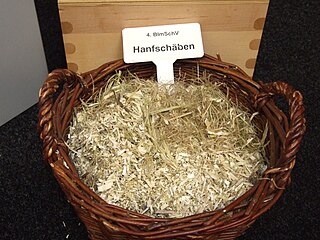
Shives, also known as shoves, boon or hurd, are the wooden refuse removed during processing flax, hemp, or jute, as opposed to the fibres (tow). Shives consist of "the woody inner portion of the hemp stalk, broken into pieces and separated from the fiber in the processes of breaking and scutching" and "correspond to the shives in flax, but are coarser and usually softer in texture". Shives are a by-product of fiber production.

Linda Waimarie Nikora is a New Zealand psychology academic. She is Māori, of Te Aitanga a Hauiti and Ngāi Tūhoe descent. She is currently Professor of Indigenous Studies and co-director of Ngā Pae o te Māramatanga at the University of Auckland, having moved in 2017 from the University of Waikato where she had been a Professor of Psychology and the founding Director of the Maori & Psychology Research Unit in the School of Psychology.
Carolyn Mary King is a New Zealand zoologist specialising in mammals, particularly small rodents and mustelids. She is currently a professor of biological sciences at the University of Waikato.

Miriam Cather Simpson is a New Zealand-American physics/chemistry academic and entrepreneur. She is currently a professor at the University of Auckland, a joint appointment between the physics and chemistry departments. She is the founder of the Photon Factory laser lab at the University of Auckland and the chief science officer for two spin-off companies, Engender Technologies and Orbis Diagnostics. She is an Associate Investigator for the Dodd-Walls Centre for Photonic and Quantum Technologies and an Emeritus Investigator for the MacDiarmid Institute for Advanced Materials and Nanotechnology. She was awarded the Royal Society Te Apārangi Pickering Medal in 2019. She has a strong focus on teaching, mentoring and public outreach and is an outspoken advocate for issues of gender equality and ethics in science.
Margaret Ann Carr is a New Zealand education academic. She is currently emeritus professor at the University of Waikato.
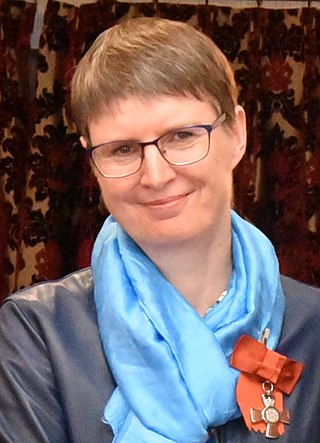
Sally Anne Brooker is a New Zealand inorganic chemist. She has been a full professor at the University of Otago since 2006.
Robin Peace is a social scientist from New Zealand. In 2018 she was appointed a Companion of the Royal Society Te Apārangi for her contribution to the promotion and advancement of the social sciences in New Zealand.

Jadranka Travaš-Sejdić is a New Zealand academic, and as of 2018 is a professor at the University of Auckland.

Margaret Mary Hyland is a Canadian-born chemist based in New Zealand whose research focuses on aluminium technology, and the chemistry and engineering of material surfaces. She moved to New Zealand in 1989 and after holding many senior academic leadership roles supporting and developing research at the faculty, university and national level became recognised as an authority on the generation and capture of fluoride emissions from aluminium smelters and for coordinating the team that produced the 'Fluoride Emissions Management Guide' for the aluminium industry. This achievement was acknowledged when she became the first woman to win the Pickering Medal. In 2017, Hyland was seconded to the Ministry of Business, Innovation and Employment in the role of Chief Scientist and has held positions in a variety of other groups supporting the physical sciences and engineering. Since 2018 she has been Vice-Provost, (Research) at Victoria University of Wellington, New Zealand.
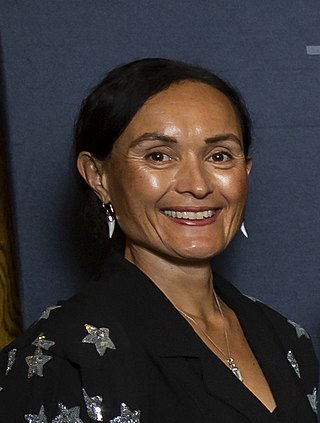
Tahu Hera Kukutai is a New Zealand sociology academic; she is Māori, of Ngāti Tīpā, Ngāti Mahanga, Ngāti Kinohaku, Ngāti Ngawaero and Te Aupōuri descent, and as of 2019 is a full professor at the University of Waikato. In 2022 Kukutai was elected a Fellow of the Royal Society Te Apārangi.
Robyn Longhurst is a New Zealand human geography academician, and as of 2006 is a full professor at the University of Waikato.
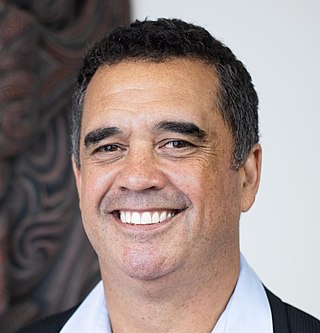
Rangiānehu Mātāmua is a New Zealand indigenous studies and Māori cultural astronomy academic and is Professor of Mātauranga Māori at Massey University. He is Māori, of Tūhoe descent. He is the first Māori to win a Prime Minister's Science Prize, is a Fellow of the Royal Society Te Apārangi, and is the chief advisor to the New Zealand Government on the public holiday Matariki.
Jarrod McKenzie Haar is a New Zealand organisational psychology academic, are Māori, of Ngati Maniapoto and Ngati Mahuta descent and as of 2019 is a full professor at the Auckland University of Technology. He is a Fellow of the Royal Society Te Apārangi.
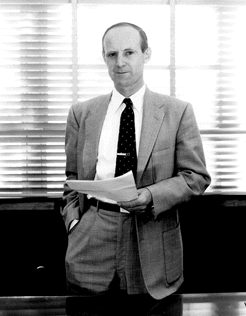
The Pickering Medal is awarded annually by the Royal Society Te Apārangi to a person or team "who, while in New Zealand, has through design, development or invention performed innovative work the results of which have been significant in their influence and recognition both nationally and internationally, or which have led to significant commercial success".
Donna Campbell is a New Zealand Māori university teacher, curator, weaver and textile artist. She affiliates with Ngāpuhi and Ngāti Ruanui iwi. Her works are held in the Museum of New Zealand Te Papa Tongarewa and in the British Museum. In 2019 Campbell completed a PhD at the University of Waikato with a thesis titled Ngā kura a Hineteiwaiwa: The embodiment of Mana Wahine in Māori fibre Arts.

Priscilla M. Wehi is a New Zealand ethnobiologist and conservation biologist. As at July 2021 she is an associate professor at the University of Otago and on the first of that month officially undertook the role of director of Te Pūnaha Matatini, a centre of research excellence in complex systems and data analytics. During the COVID-19 pandemic in New Zealand Te Pūnaha Matatini scientists have developed mathematical models of the spread of the virus across the country that influence the New Zealand government's response to the outbreak. In 2021 Wehi was awarded the Hill Tinsley Medal.
References
- ↑ "Kim Pickering – Faculty of Science and Engineering : University of Waikato". sci.waikato.ac.nz.
- ↑ "New professor for Science and Engineering". www.waikato.ac.nz. 30 January 2014.
- ↑ "Waikato University researchers push the boundaries of 3D printing". Stuff. 7 November 2016.
- ↑ "Eco-friendly materials ready to replace everything, Waikato University professor says". Stuff. 13 October 2017.
- ↑ "Kim Pickering – Curious Minds, He Hihiri i te Mahara". 7 November 2017.
- ↑ Pickering, Kim. "The future of plastics: reusing the bad and encouraging the good".
- ↑ "Royal Society Te Apārangi – 2017 Scott Medal: Developing sustainable materials with natural products such as harakeke and hemp". royalsociety.org.nz.
- ↑ "Creating sustainable manufacturing materials". 26 October 2017.
- ↑ "Kim Pickering". Royal Society Te Apārangi. Retrieved 11 May 2021.